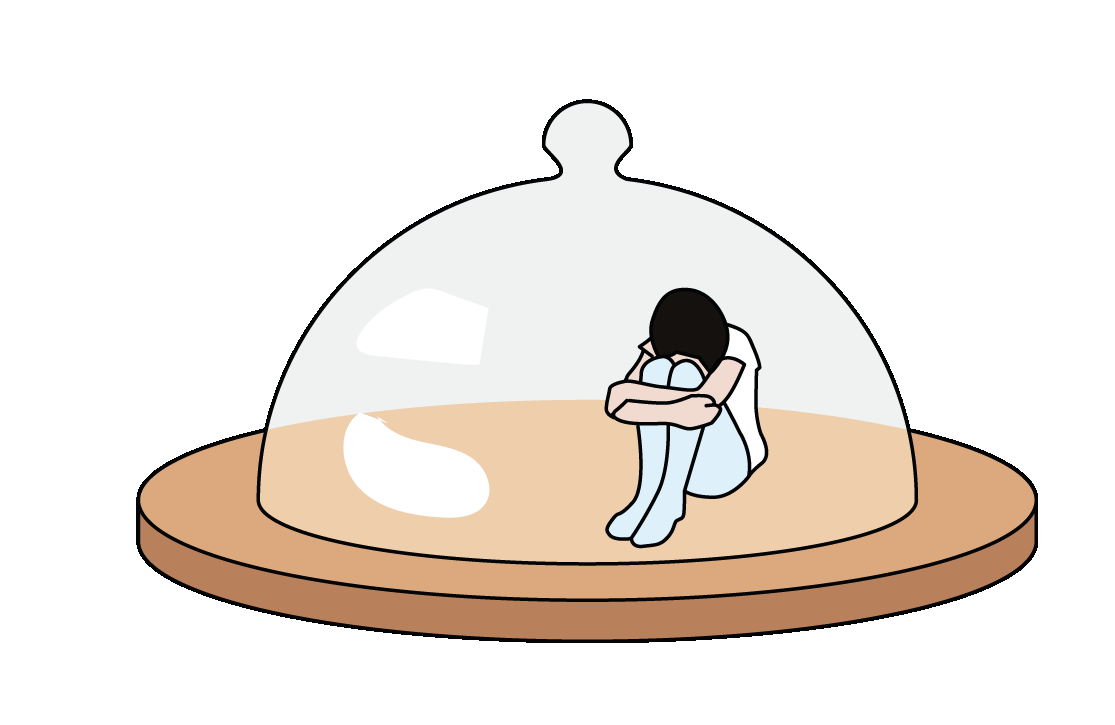You are not alone
Many feel the same way you do. They are in a relationship and feel that something is wrong.
Domestic violence can affect anyone, regardless of gender, educational background, nationality, or age. However, women are most frequently affected. Worldwide, one in three women are subjected to physical or sexual violence during her lifetime. Emotional violence is even more common.
Violent relationships are never okay. You can (and should) get help.

How can you get help?
There are various support services that can help you. You have the choice: You can either seek help in your region or go to an advisory centre in another canton.
Get help hereVictim advisory centres
If you experience any type of violence in your relationship, victim advisory centres are your point of contact. They help you find ways out of your abusive relationship. They inform you about your rights, support your decision-making or advise you what steps to take next if children are involved.
You can contact them by phone or e-mail and, if you want to, arrange a personal meeting.
- If you don’t speak any national language, the victim advisory centres work with interpreters, also in sign language.
- The counselling sessions are free of charge. You set the pace. Nobody will force you to do anything you don’t feel ready for.
- If you file a complaint, they can support you throughout the whole process.
- Depending on your situation, they can refer you to a lawyer or psychotherapist.
- In case of an emergency, you will receive financial assistance.
Women's and men's shelters
If you are acutely affected by violence, you will receive protection and support in a women's or men's shelter. You can also bring your children to the shelter.
Women’s and men’s shelters are places of refuge for people who experience psychological, physical and or sexual violence and find themselves in an unsafe or threatening situation.
- The service is open to everyone, regardless of nationality or residency status.
- The address of the shelter is kept confidential, you are safe there. The staff will not tell anyone where you are. They are specialized to support you during this time of crisis.
- They provide protection and temporary housing. You can stay until you have found a solution. Maximum stay is six months.
Police
If you feel threatened or if you are acutely affected by violence, contact the police directly on the emergency number 117. If you are injured, the police will call the ambulance (144).
What happens when you call the police?
- The police will separate you and your partner. They will ask you questions – it’s important that you tell them exactly what happened and mention any previous abuse.
- Usually, the police will take the abusive partner to the police station. They can also hold the person there for a limited time.
- The police can make sure that your abusive partner cannot directly contact you. They can also restrain him/her from coming close to your home, your neighbourhood or other places.
- If you have children, the police will inform the child and adult protection authority (KESB). They can then take measures to protect you and your children from abuse.
- Depending on the abuse, the police will automatically arrest the abusive partner.
If you wish to report your abusive partner to the police, experts recommend that you seek advice from a victim advisory centre first. They can prepare you in the best possible way for the questioning, which can be emotionally difficult.
Psychological support
Being in a toxic relationship and experiencing violence can be enormously stressful, both physically and psychologically. It can be relieving to seek psychological support to talk about your experiences and have somebody who can support you in your decision-making.
The victim advisory centres can also help you find suitable psychological support.
I was in an abusive relationship
Three survivors of domestic violence tell you their stories.